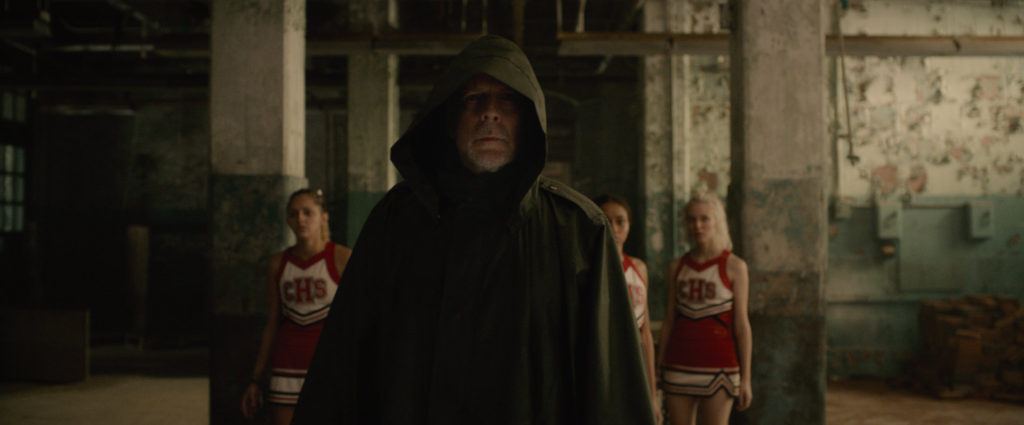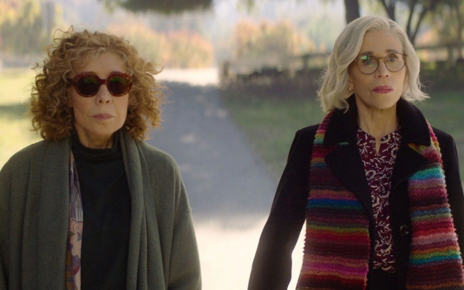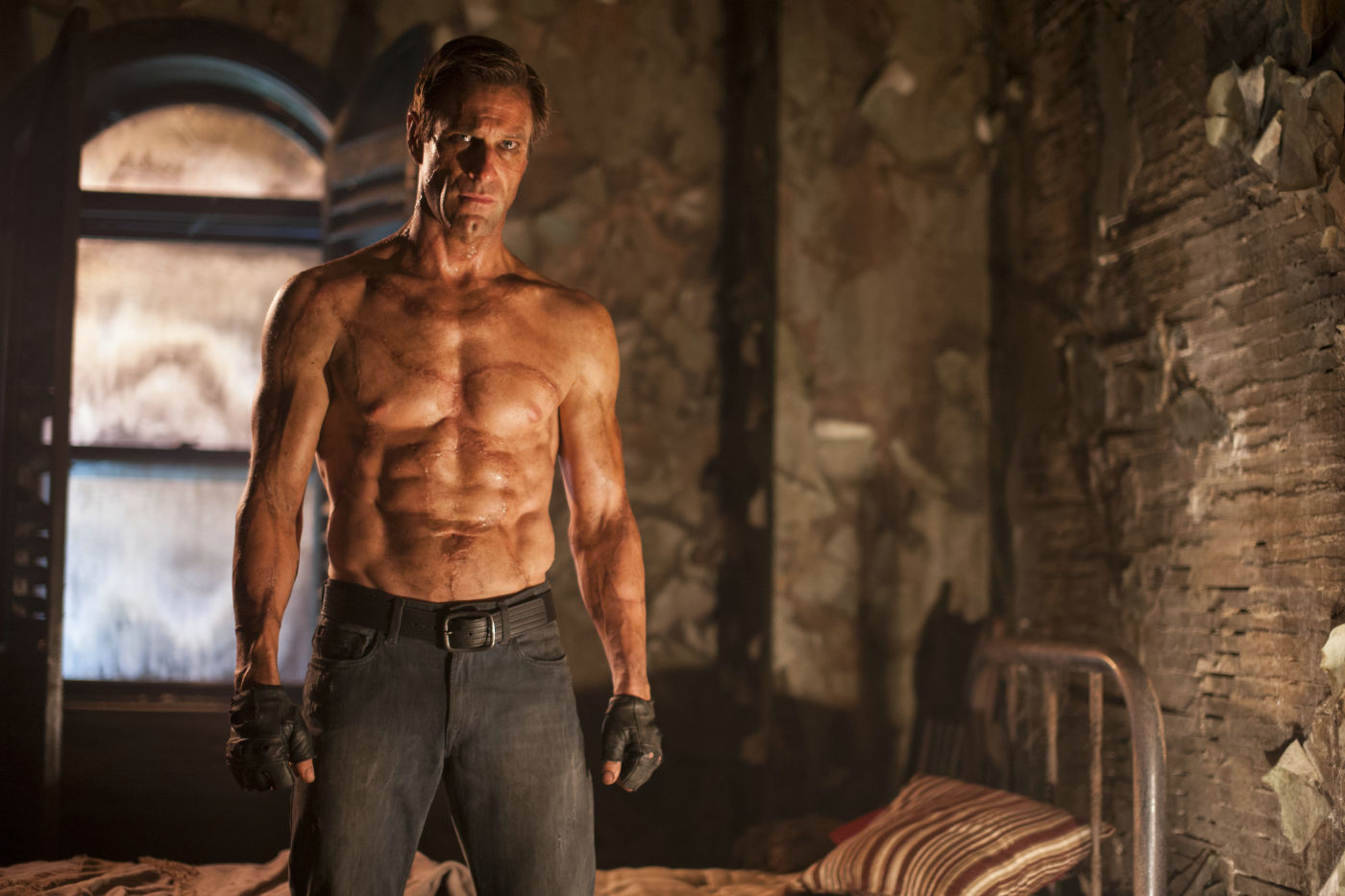It has been nineteen years since Samuel L. Jackson and M. Night Shyamalan first got together to debate which of them held the superior use of a superfluous initial. For Jackson, it has been same-old-same-old; he’s been a legend ever since Pulp Fiction and while his persona has achieved near-comic status, nothing he’s done has taken away from the perception of legend. Shyamalan, on the other hand, has used the interim to discover every zone on the star chart.
Following the brilliant Sixth Sense with the near-brilliant Unbreakable, Shyamalan could have done anything he wanted. Yet, after he broke from Unbreakable and Jackson, his status steadily fell from the acceptable (Signs, The Village), to the meh (Lady in the Water), to the unwatchable (The Happening, After Earth). In between the last two, he made The Last Airbender, and we all assumed his career was over. Since, however, his films have been better. The Visit was a fair horror. Split was even better. Woohoo, Night! You’ve pulled yourself back up to mediocrity. We the audience are ready to see your films again, but we reserve the right to hate them. And with that, I give you the long-awaited synthesis of Unbreakable and Split, Glass.
Glass is an ambitious film; Shyamalan wants us to review what we learned from his earlier films (that superhero comics have roots in genuine human phenomena), and he plays his thesis no longer as a sidebar, but as the driving force. Personally, I think he’d find stronger evidence tying fairy tale, nursery rhyme, or Old Testament descriptions to real-life events. We know from 2017 cinema, for instance, that Wonder Woman wasn’t born of any mis-percepted real-life human event, but instead that the author dug bondage sex. Shyamalan, however, is clearly a comic books guy, not a bible guy, so –Wonder Woman notwithstanding- he insists upon telling us about how comic book heroes are born of “normal” human interaction.
James McAvoy has used Split and Glass to employ the full range of his acting prowess. Even if this looks on occasion like he’s holding an acting seminar, I daresay he’s impressive; McAvoy can assume a single stance and we know that, without saying a word, he has assumed the character of Miss Patricia, the matriarch among the two-dozen personalities of the schizophrenic Kevin Wendell Crumb. Many of these personalities are harmless, even benevolent. But #24, “The Beast,” is a psychopathic killing machine. The Beast is the looming spectre threatening four cheerleaders chained in an abandoned warehouse as the film begins.
Opposing The Beast for Glass will be David Dunn (Bruce Willis), the hero who discovers his own comic-book-type strength in Unbreakable. Now dubbed “The Overseer,” for his either his vigilante-like antics or for occupying the super’s apartment, Dunn dons his rain poncho of mystery to go fight crime alone in the city. Shyamalan shows his cards early when Dunn rescues the cheerleaders in hand-to-claw combat with The Beast. Immediately following, McAvoy and Willis are sent to the psyche hospital where most of the film takes place.
Oh, and also at the psych hospital? Elijah Price (Jackson), aka “Mr. Glass,” the wheelchair bound villain from Unbreakable. The summit is conducted by Dr. Ellie Staple (Sarah Paulson), who offers the thesis counterargument: all this superhero stuff is in your mind; there is no connection between the comics and real life.
One hidden insight into the inevitable conflict is that the battle set-up is not just one of good (The Overseer) v. evil (The Beast). Glass sets the climax as nearly an afterthought; the real conflict in the film is one of lawful v. chaotic. Most people associate lawful with good and chaotic with evil. That happens a lot in a country with such a war-like disposition, but all D&D players know these things are not necessarily true. There is lawful evil (the Nazis, Trump policy*), just as there is chaotic good (“live and let live”). All three of the main characters in Glass are proponents of chaos. There is nothing lawful about vigilantism, but we’d never call The Overseer evil, would we? Glass is as much an argument in favor of chaos as opposed to law as it is a movie about anything else. I’m not sure that thesis holds here, either, but I appreciate the effort.
There are a number of things to like about this film; I love how each comic book character has both an aura and a color of association. Each has a weakness, just like in the comic books. And each has a champion; for David, it’s his son (Spencer Treat Clark), for Elijah, it’s his mother (Charlayne Woodard), and for The Beast, it’s his Stockholm Syndrome victim from Split (Anya Taylor-Joy). While I’m not sure these elements played out in any useful or intuitive way, it was easier to see a director in control of his art rather than the other way around.
I enjoyed Glass for the most part. Yeah, it spent waaaay too long in the psych ward and never really broke free once it got there. I have no doubt many critics will see this film as yet another classic January fail. It is certainly the weakest of the Unbreakable/Split/Glass trilogy. Yet, I see here a film that had a lot to offer even if it didn’t have a lot in payoff. I would happily revisit each of the three main figures again if it ever came to that. In fact, a Netflix TV series project might be a better format for this world, where the adventures of each superman could be explored in detail before a climactic series culmination. Perhaps I’m seeing more here than there was. No doubt you’ll find the film wanting no matter who you are or why you’ve come.
Another round Shyamalan-fu
Try not to ask him, “what’s new?”
M. Night won’t call it quits
As he’s milking his hits
Does Mr. Glass see dead people, too?
Rated PG-13, 129 Minutes
Director: M. Night Shyamalan
Writer: M. Night Shyamalan
Genre: Comic book ending
Type of being most likely to enjoy this film: Fans of comic books
Type of being least likely to enjoy this film: Fans of the big payoff

*Trump policy … an explanation is needed here because the world has rarely seen a public figure so lawless as Donald Trump. Trump doesn’t believe in laws that restrict his own behavior, only those that restrict the behavior of what he sees as enemies. When it comes to corporate liability, it’s “see no evil,” but when it comes to locking brown kids in cages, it’s “they can’t be uncomfortable enough.”



